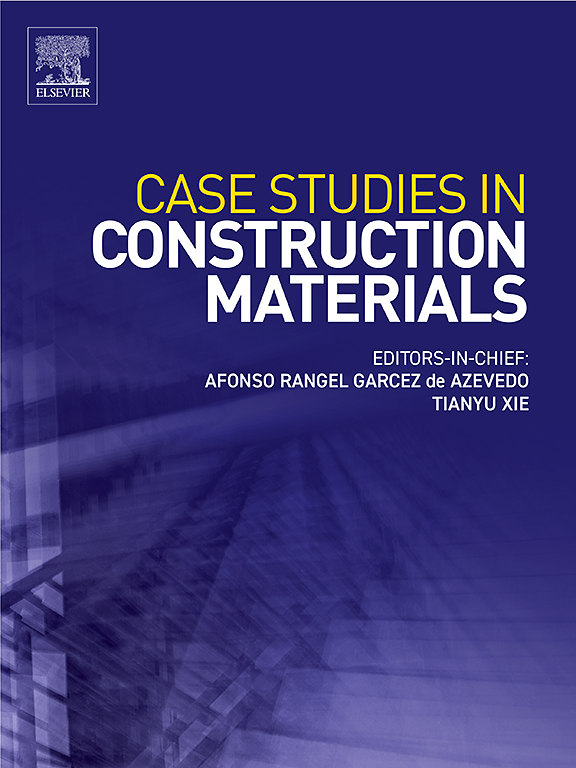Experimental study on the effect of nano SiO2 dispersion on the compressive strength and early high-temperature resistance of modified cement paste
IF 6.5
2区 工程技术
Q1 CONSTRUCTION & BUILDING TECHNOLOGY
引用次数: 0
Abstract
This study investigates the influence of varying levels nano-silica (NS) dispersion levels on cement paste (CP) properties. Utilizing ultrasonic dispersion and water-reducing agent, NS was uniformly dispersed within the CP. This research methodically investigates the dispersion of NS and its subsequent effects on CP's mechanical properties, high-temperature resistance and microstructure. The findings demonstrated that effectively dispersed NS markedly improved CP's initial and residual compressive strength after high-temperature exposure. Optimal comprehensive performance of the cement paste was achieved with an ultrasonic dispersion duration of 40 min, an NS concentration of 1.0 wt%, and Polycarboxylate Ether concentration of 0.75 wt%. The 28-day compressive strength was 83.7 MPa, and the normalized residual compressive strength was 37.3 % after holding at 800 ºC for 2 h. Microstructure analyses indicate that optimal NS dispersion facilitates the early cement hydration process by filling minute voids and increasing the compactness of the cement matrix. This enhancement positively impacts CP's internal structure, mitigating crack formation and growth, thus enhancing compressive strength and high-temperature resilience.
纳米SiO2分散对改性水泥浆体抗压强度和早期耐高温性能影响的实验研究
本研究探讨了不同纳米二氧化硅(NS)分散水平对水泥浆体(CP)性能的影响。利用超声波分散剂和减水剂,将NS均匀地分散在CP中。本研究系统地研究了NS的分散及其对CP力学性能、耐高温性能和微观结构的影响。结果表明,有效分散的NS显著提高了CP高温暴露后的初始抗压强度和残余抗压强度。超声分散时间为40 min, NS浓度为1.0 wt%,聚羧酸醚浓度为0.75 wt%时,水泥浆体的综合性能最佳。28天抗压强度为83.7 MPa, 800 ºC保温2 h后归一化残余抗压强度为37.3 %。微观结构分析表明,最佳的NS分散通过填充微小空隙和增加水泥基质的密实度来促进水泥早期水化过程。这种增强对CP的内部结构产生积极影响,减缓裂纹的形成和扩展,从而提高抗压强度和高温回弹性。
本文章由计算机程序翻译,如有差异,请以英文原文为准。
求助全文
约1分钟内获得全文
求助全文
来源期刊

Case Studies in Construction Materials
Multiple-
CiteScore
7.60
自引率
19.40%
发文量
842
审稿时长
63 days
期刊介绍:
Case Studies in Construction Materials provides a forum for the rapid publication of short, structured Case Studies on construction materials. In addition, the journal also publishes related Short Communications, Full length research article and Comprehensive review papers (by invitation).
The journal will provide an essential compendium of case studies for practicing engineers, designers, researchers and other practitioners who are interested in all aspects construction materials. The journal will publish new and novel case studies, but will also provide a forum for the publication of high quality descriptions of classic construction material problems and solutions.
 求助内容:
求助内容: 应助结果提醒方式:
应助结果提醒方式:


